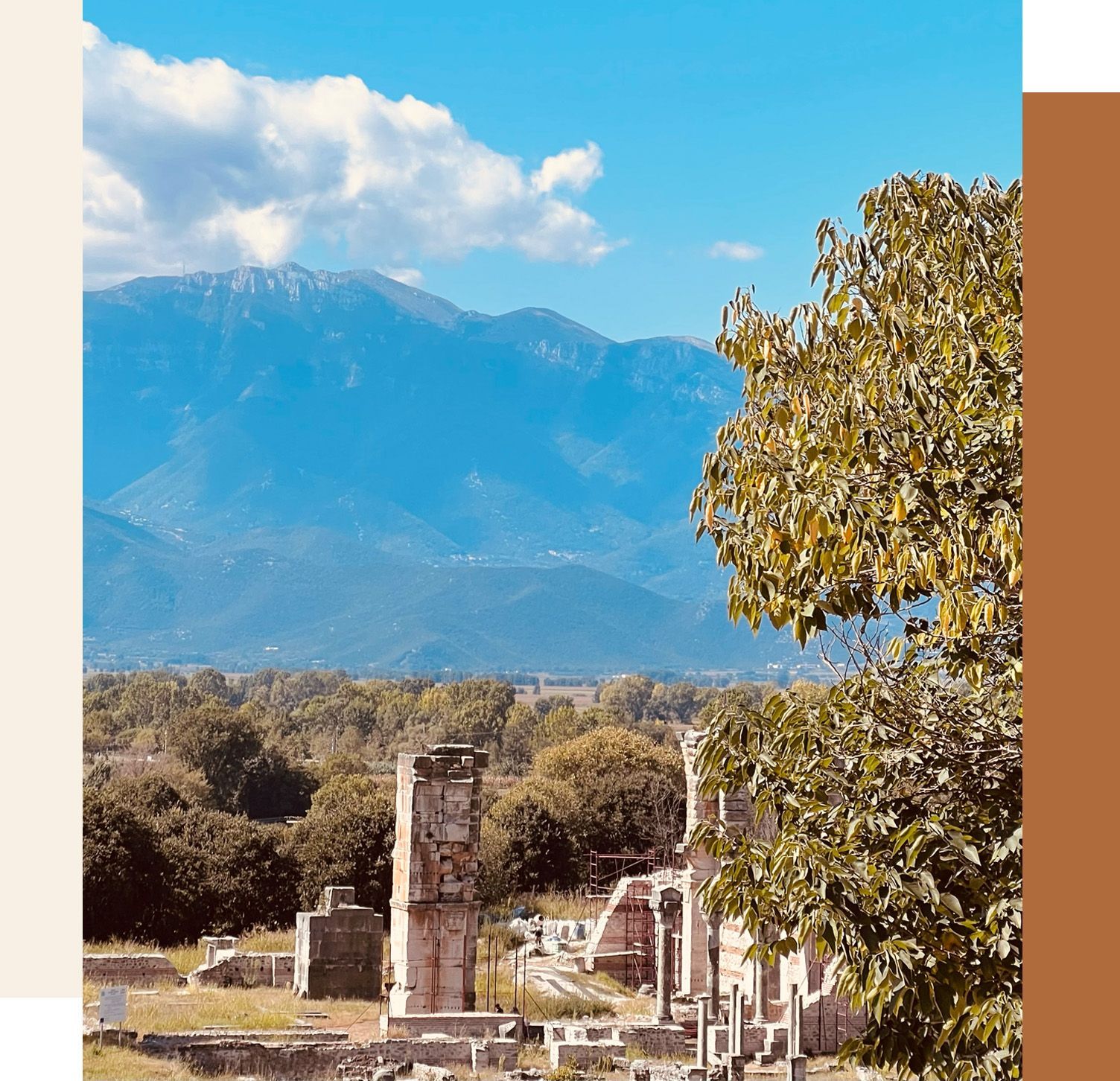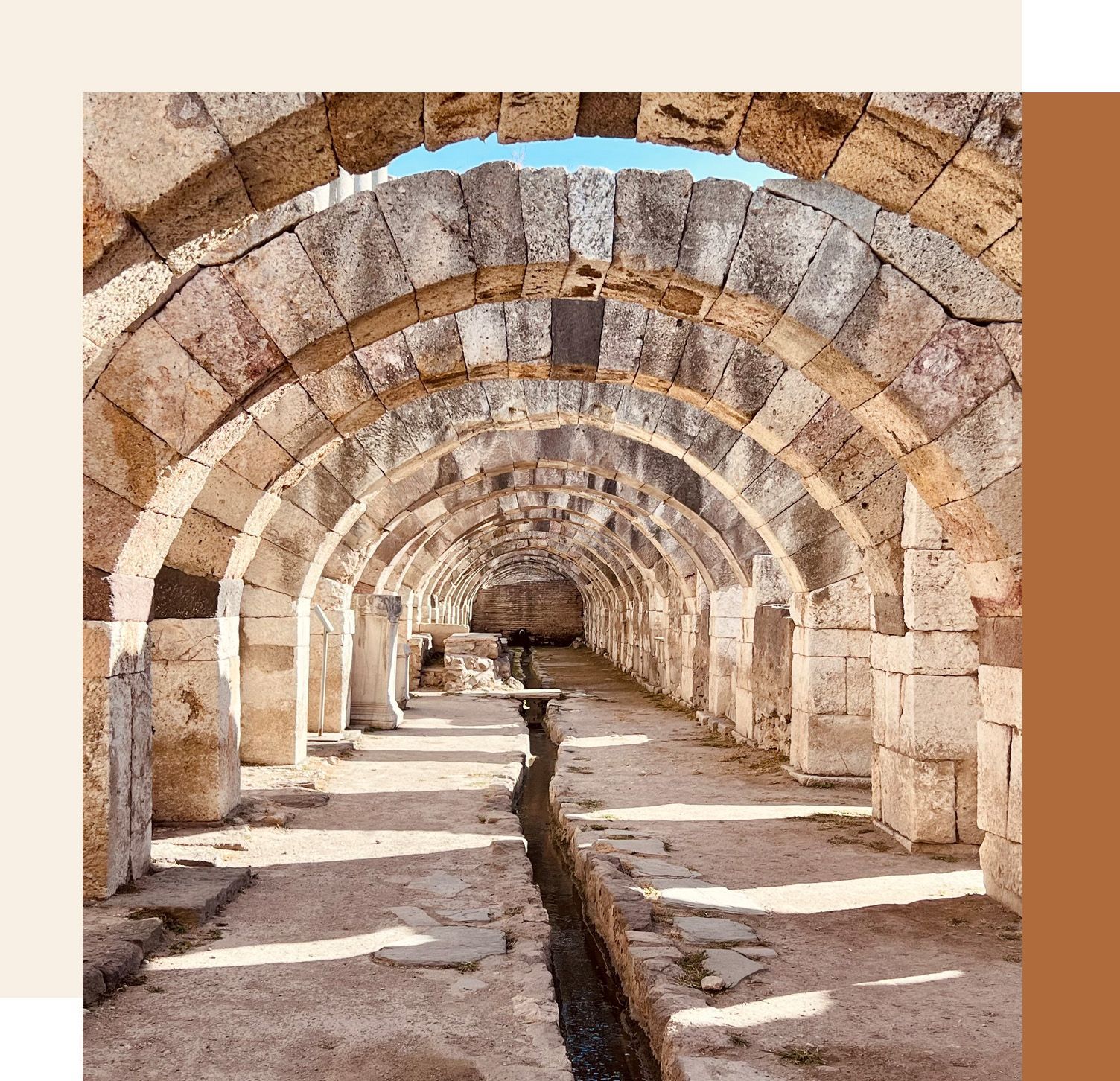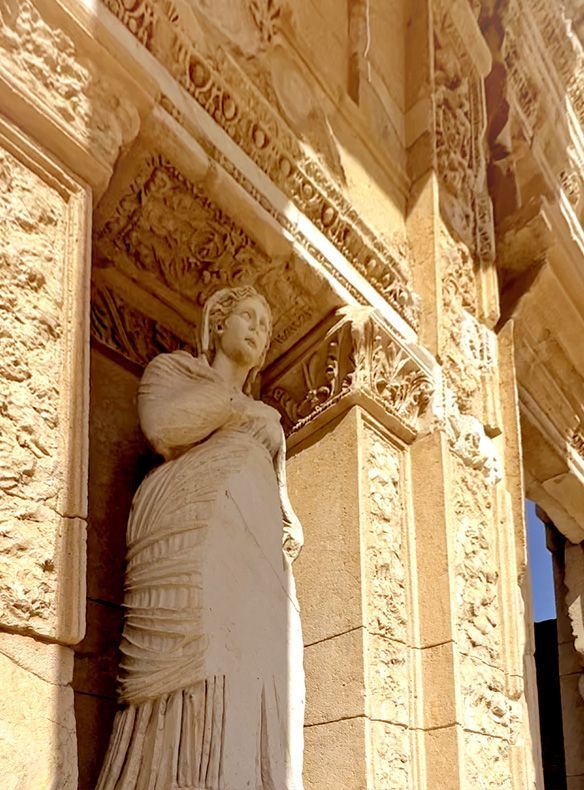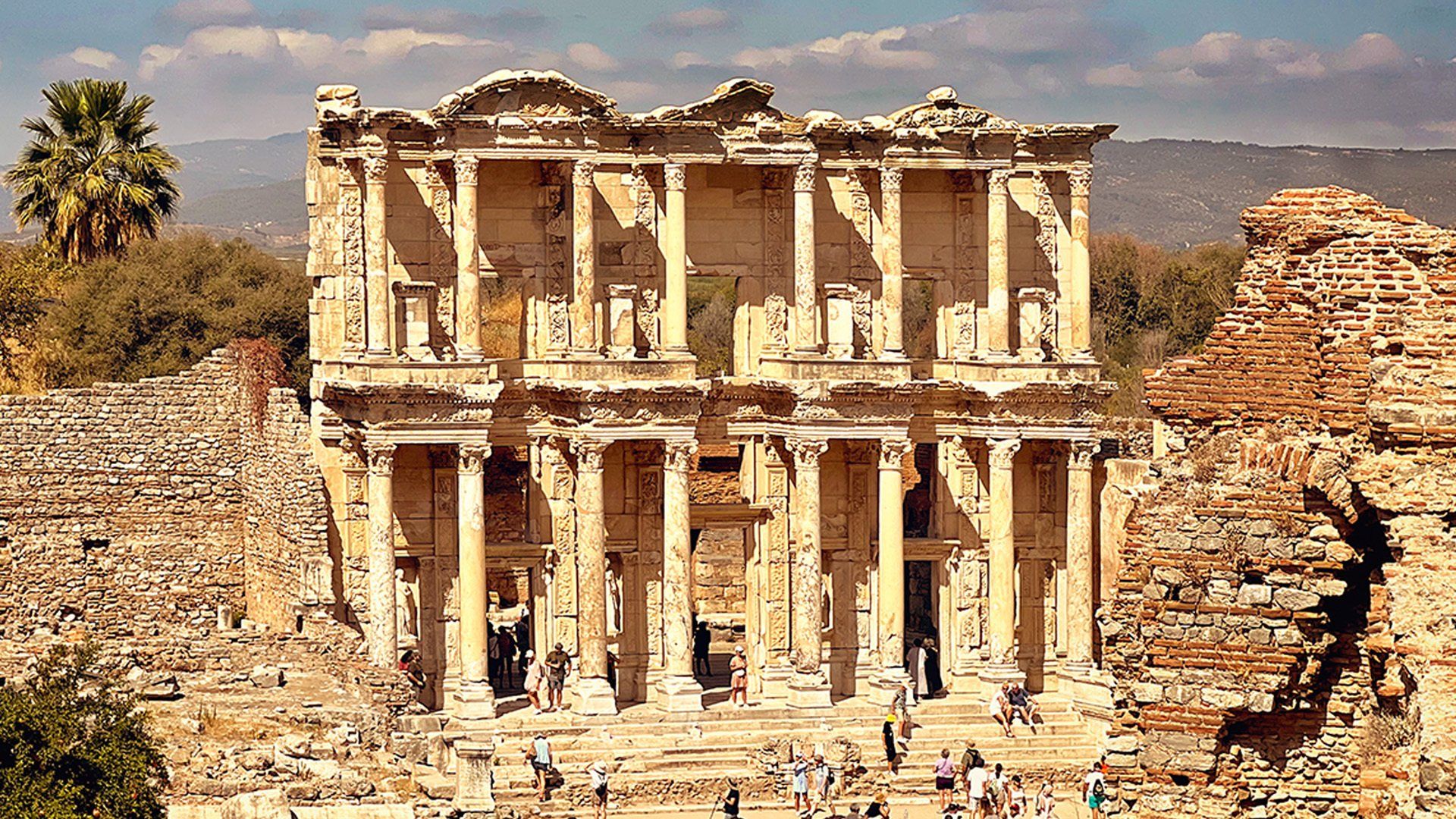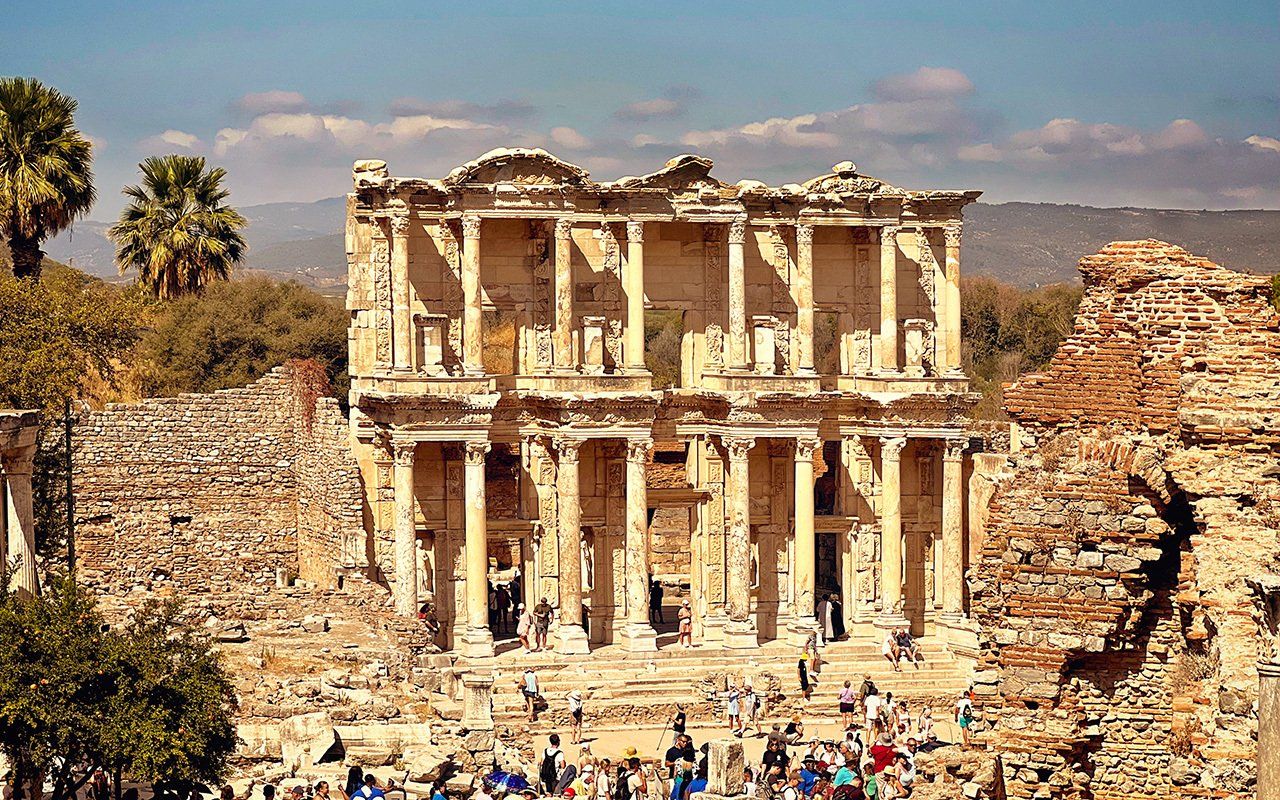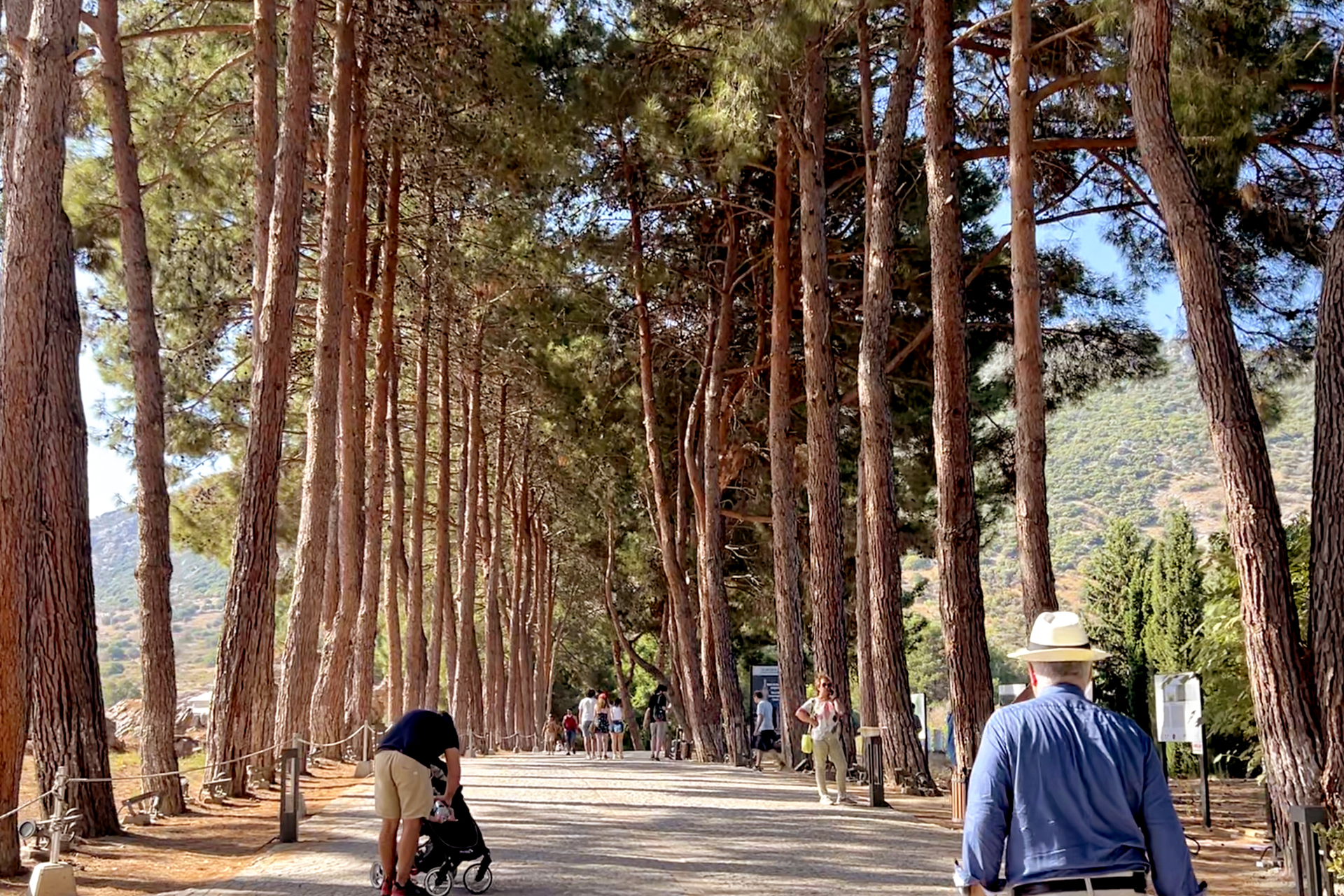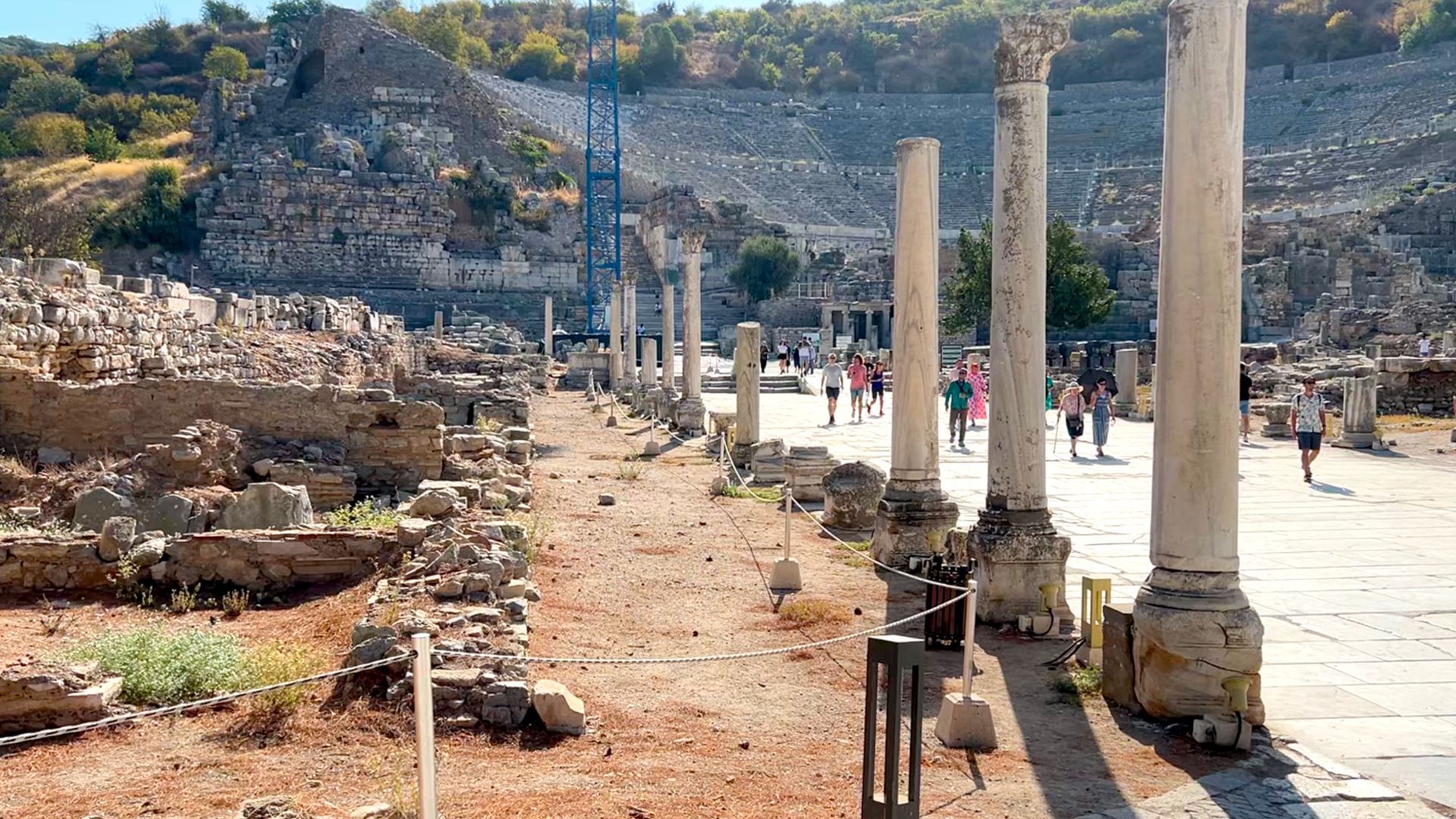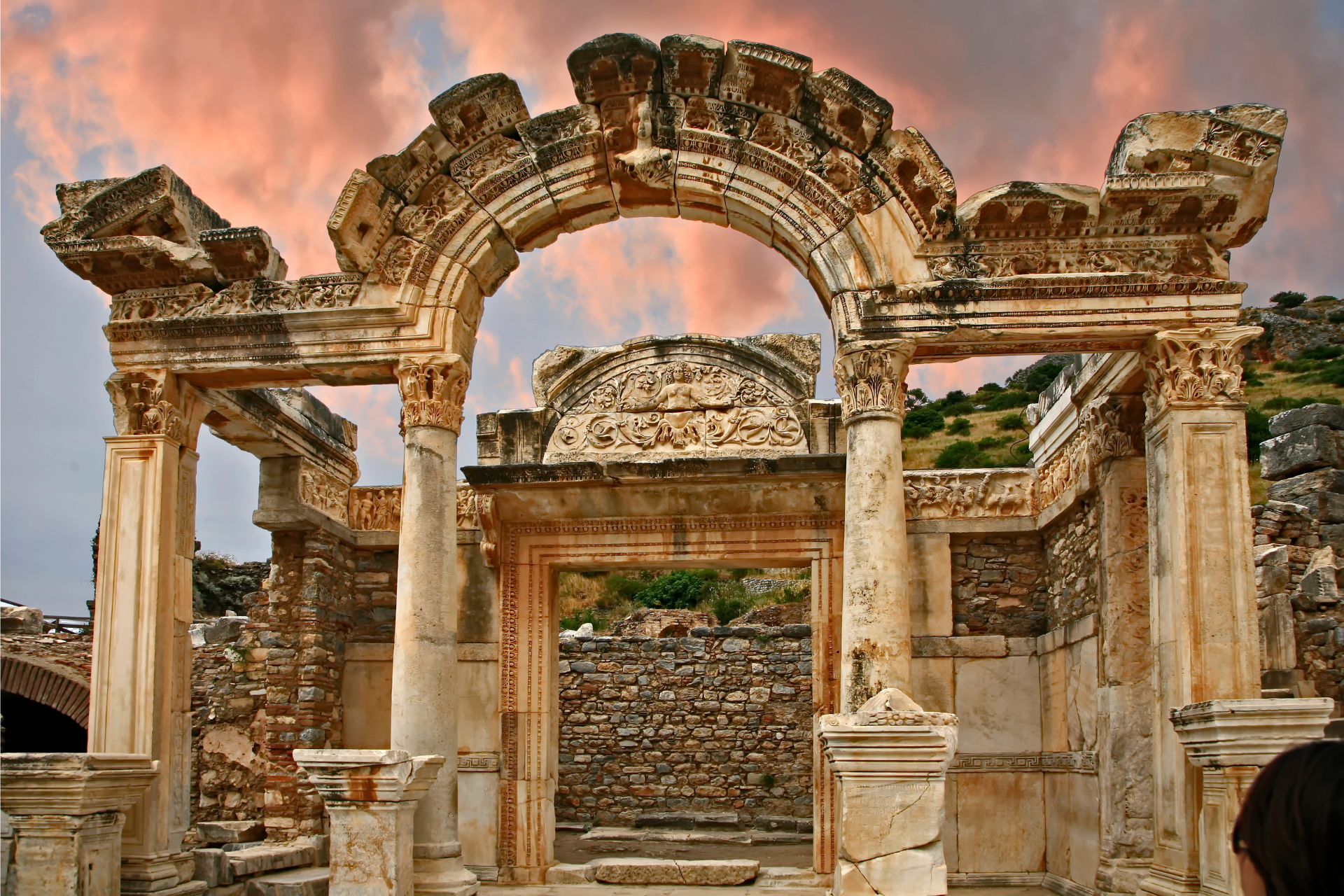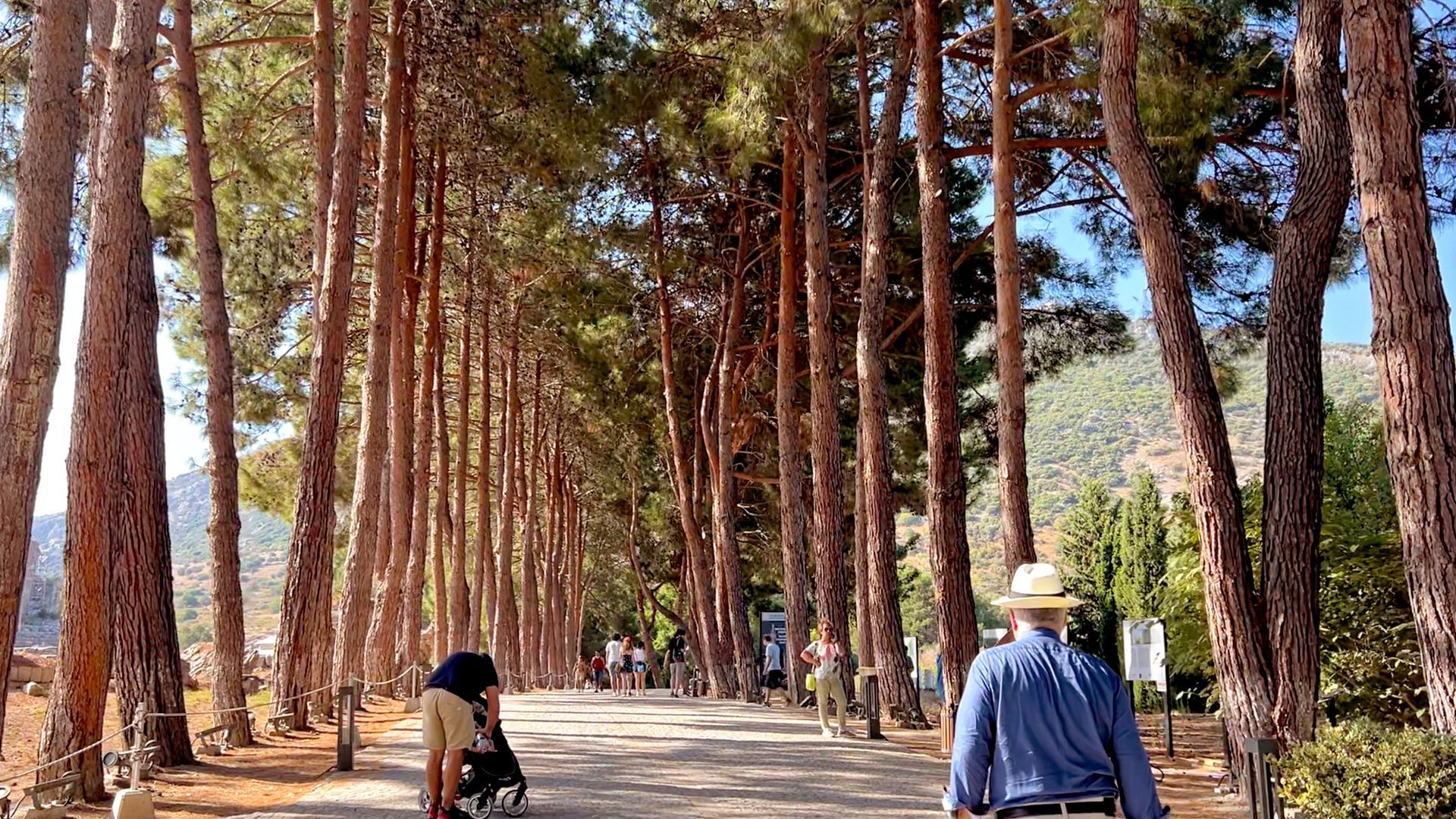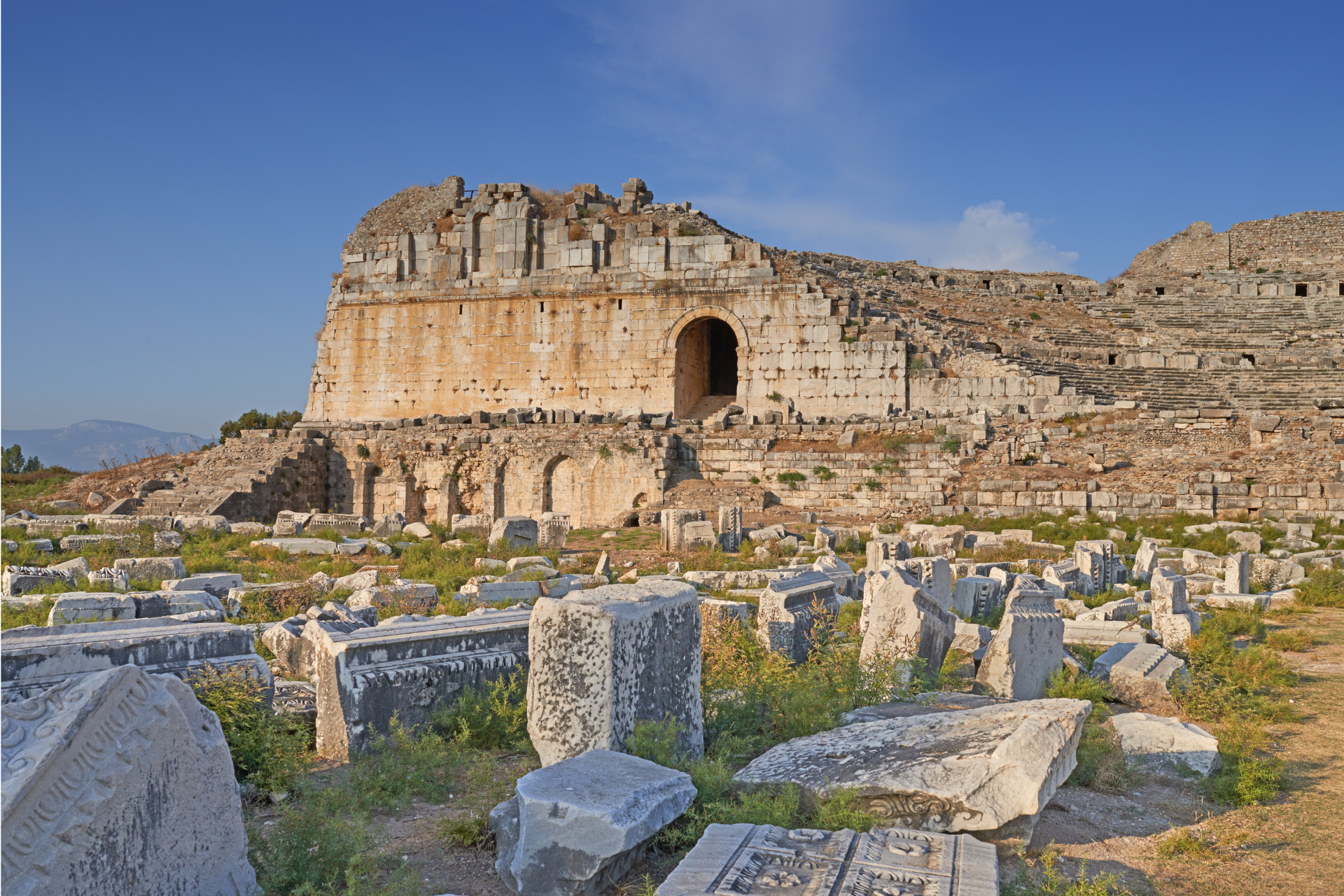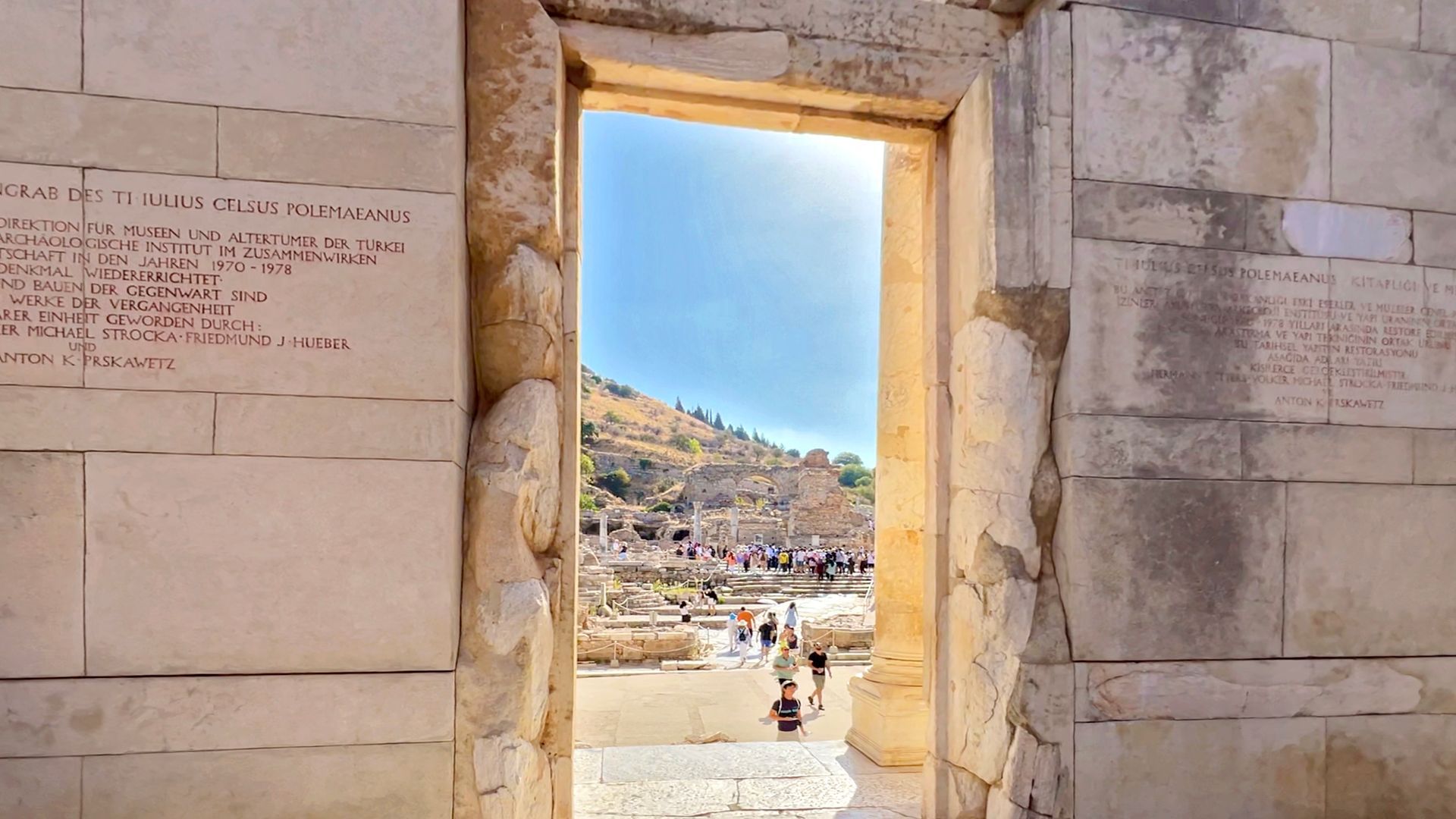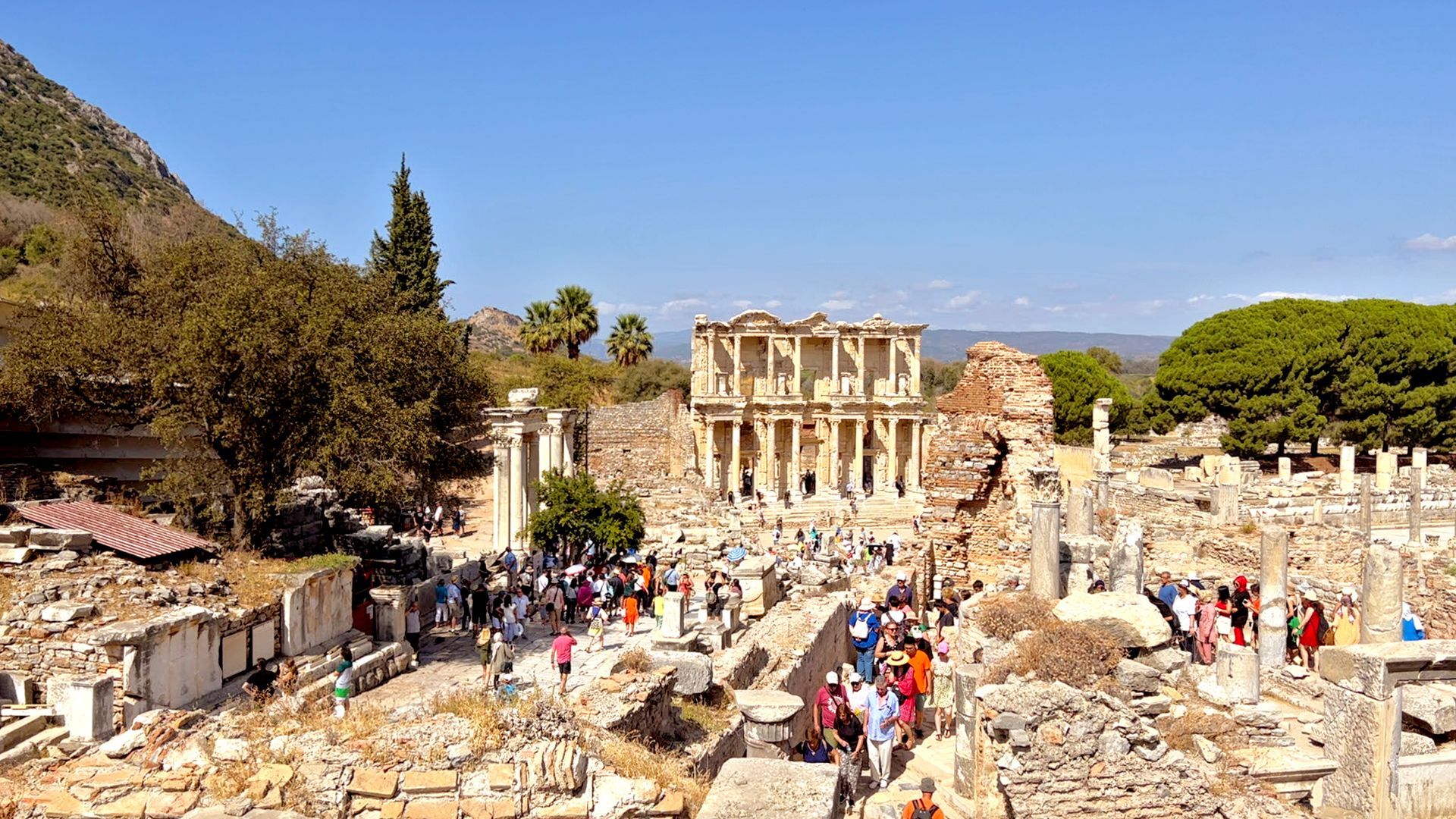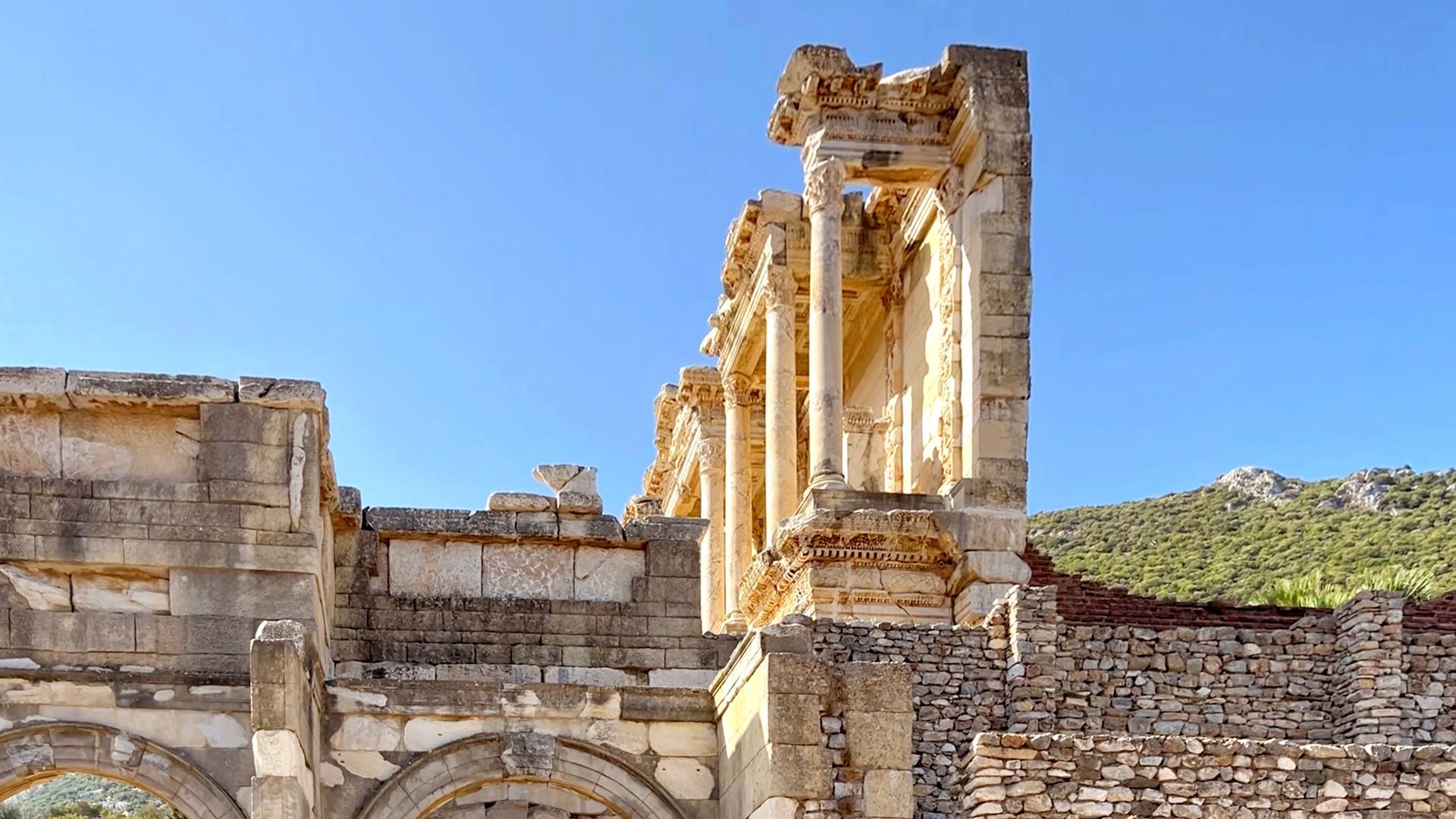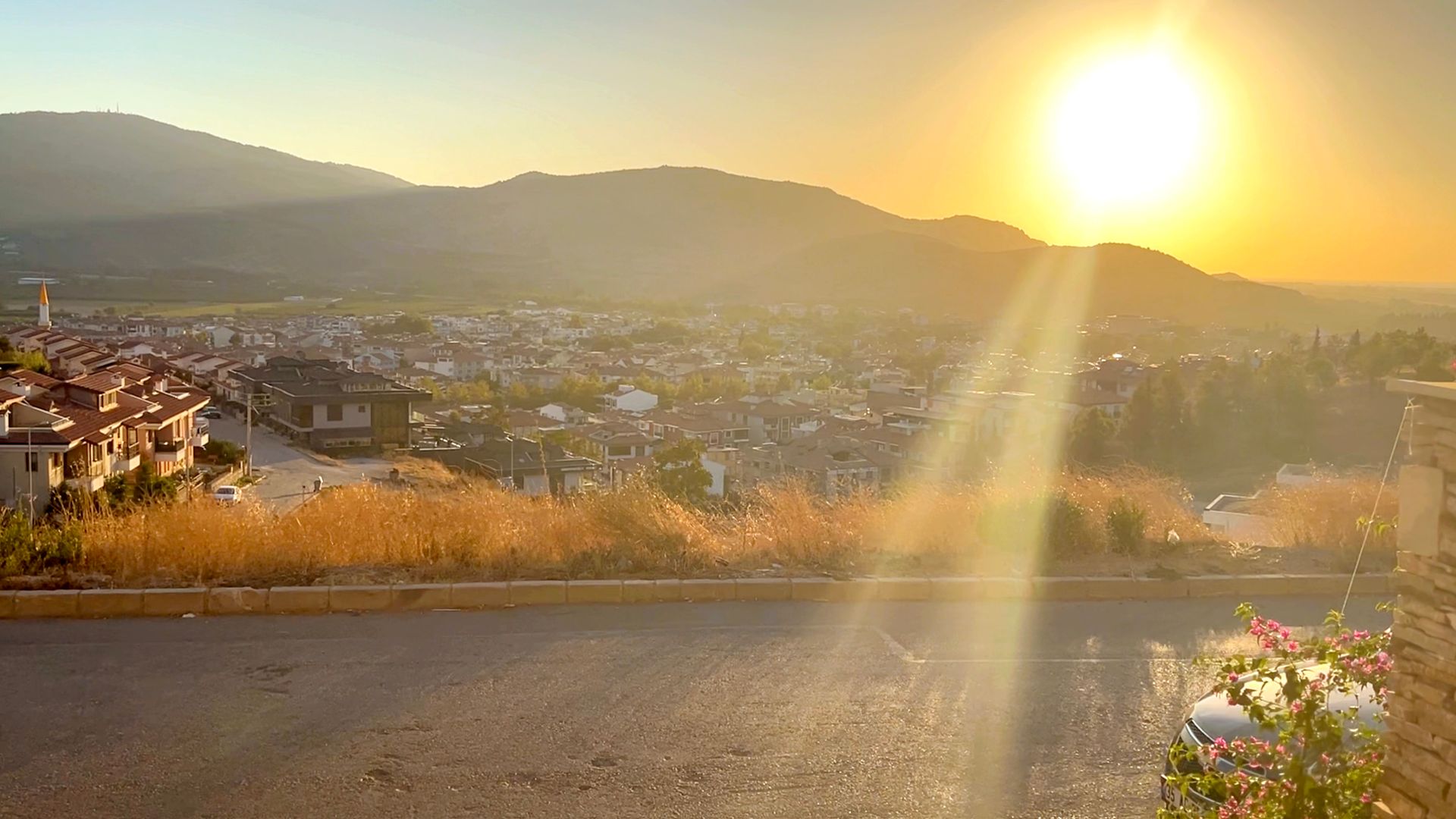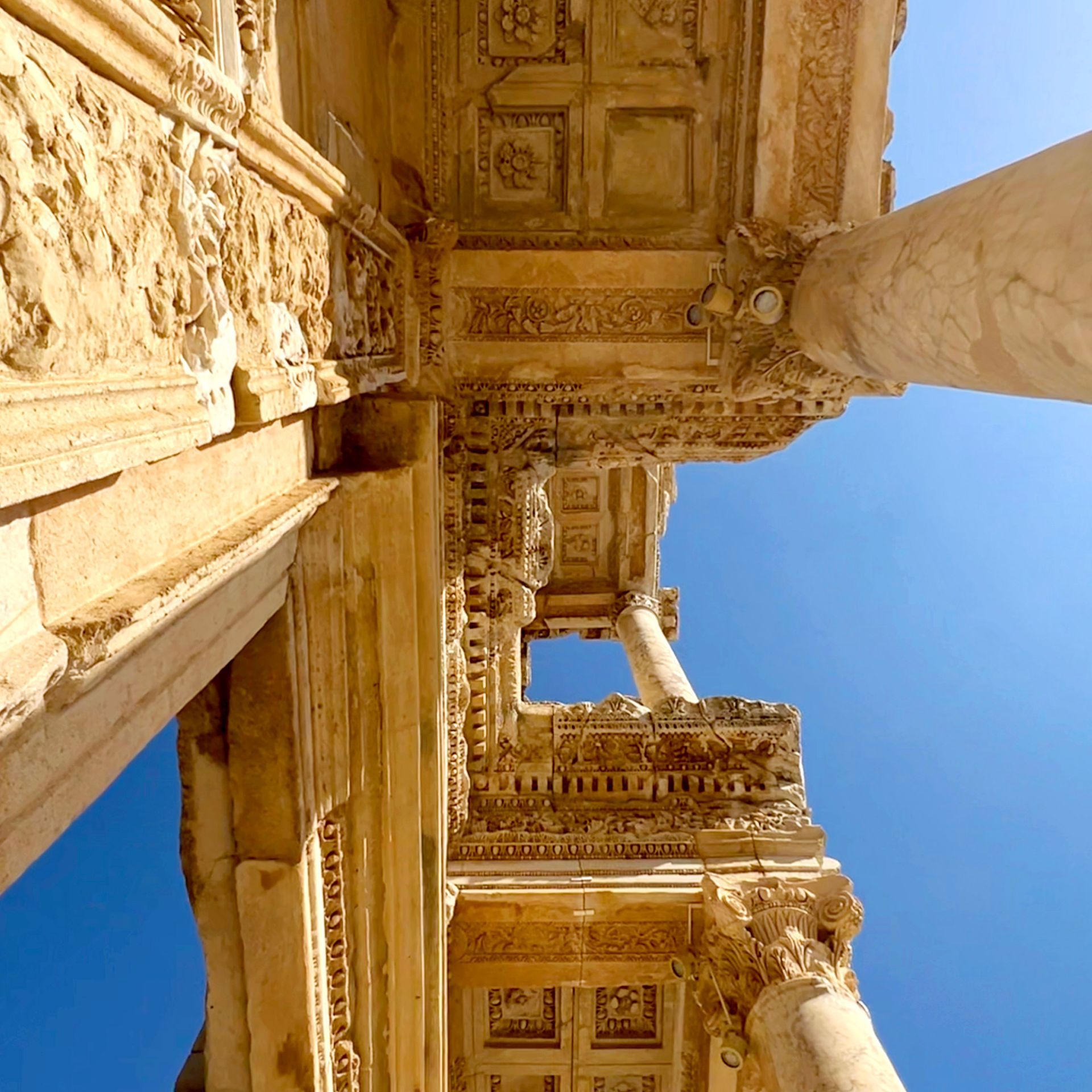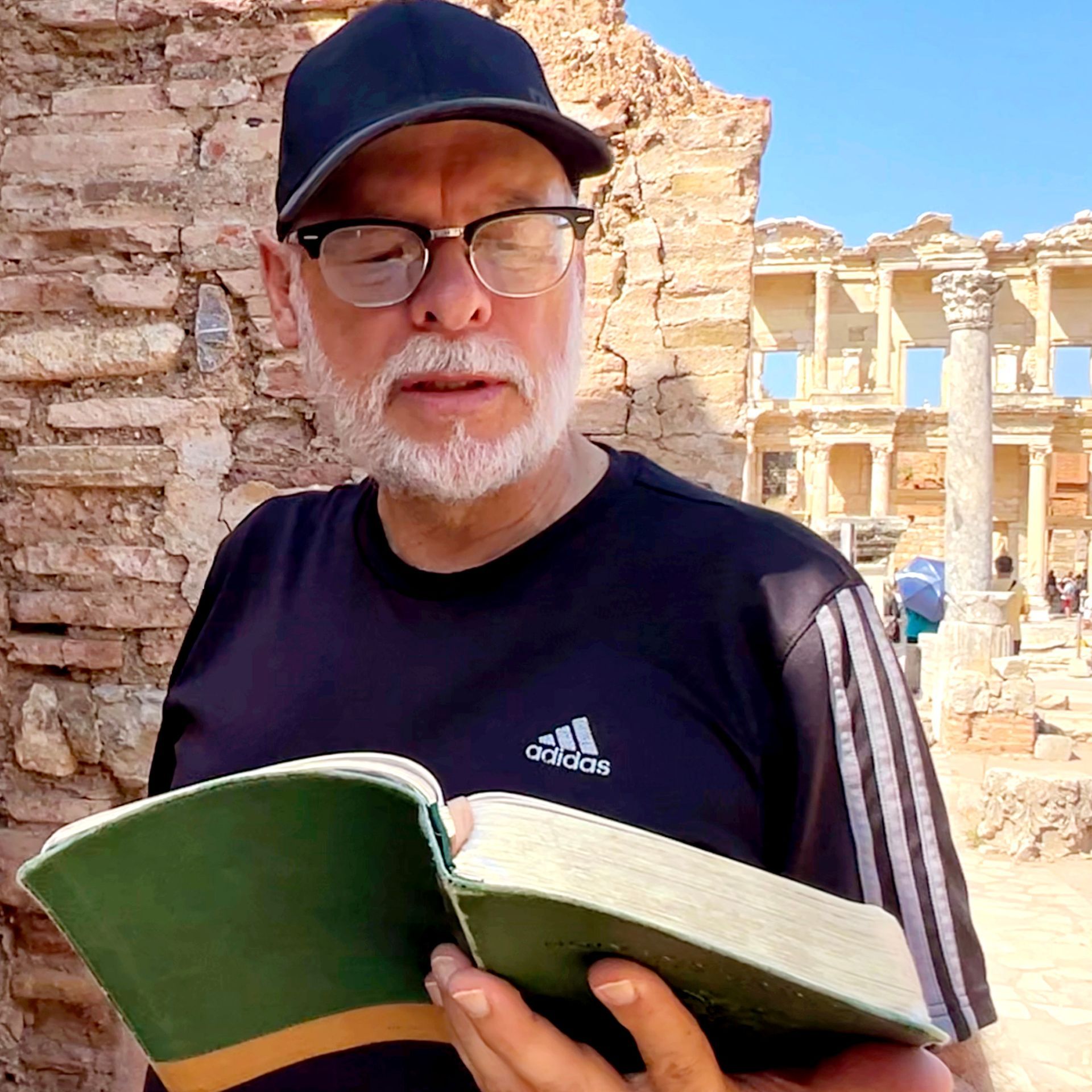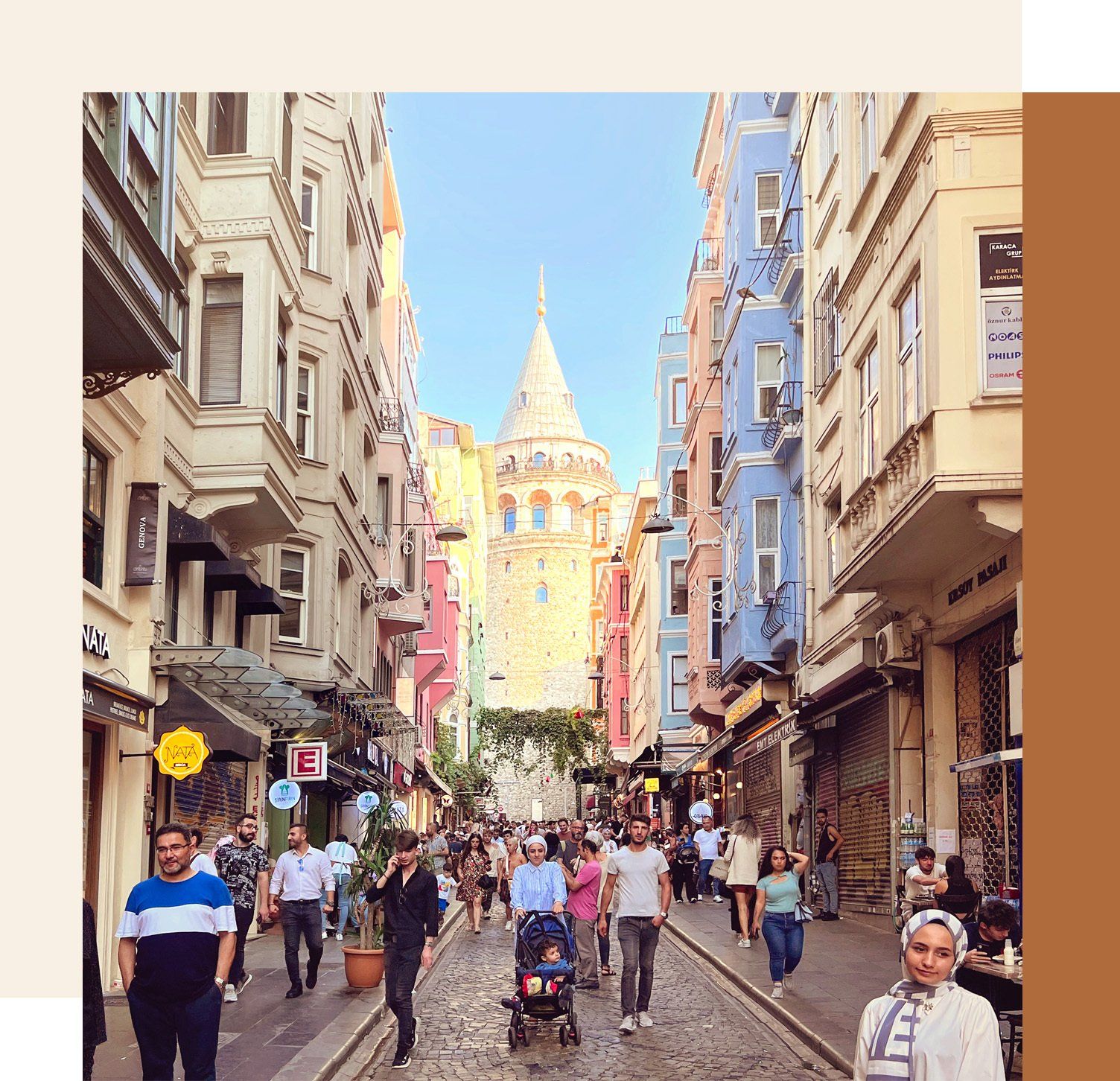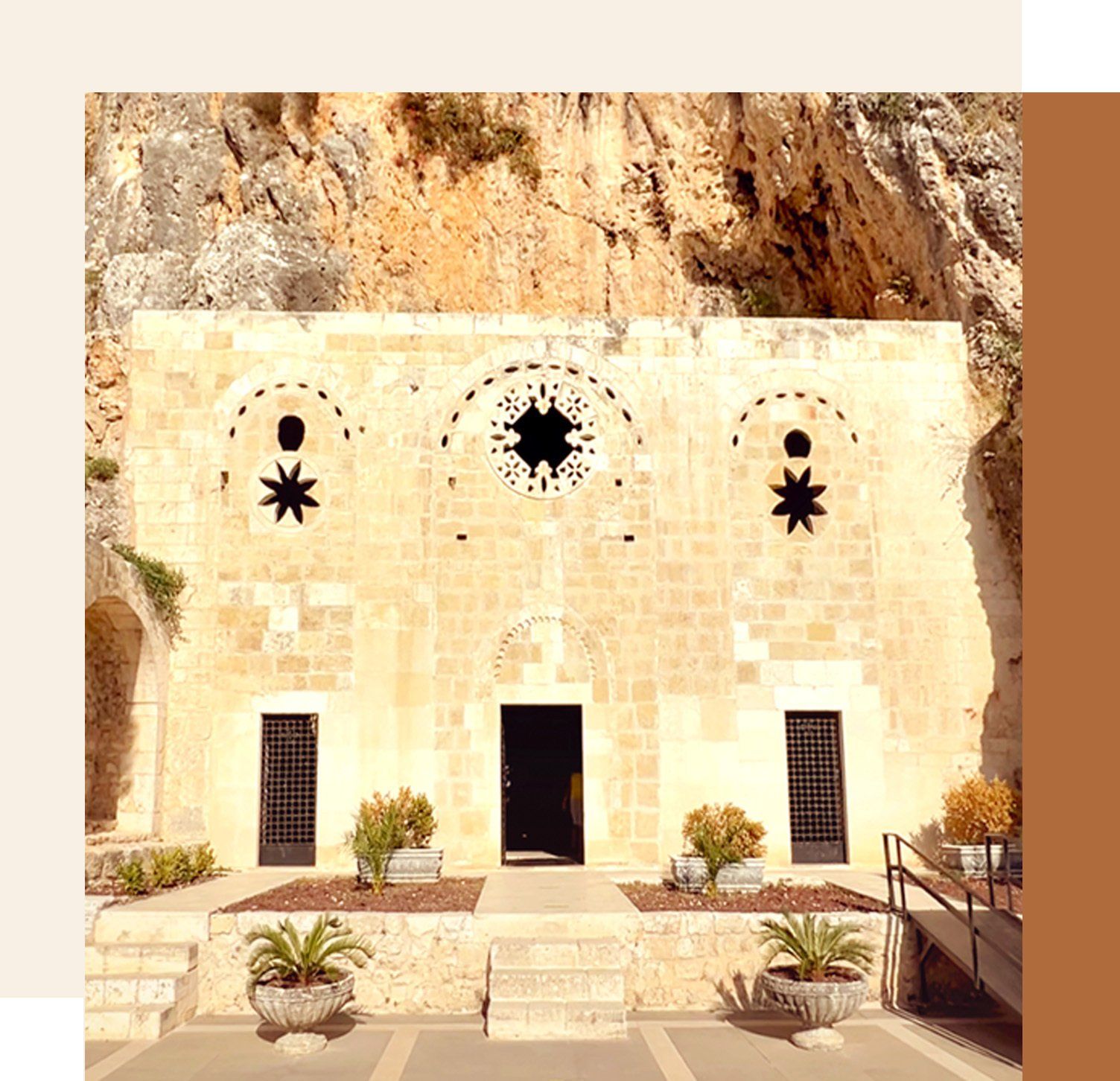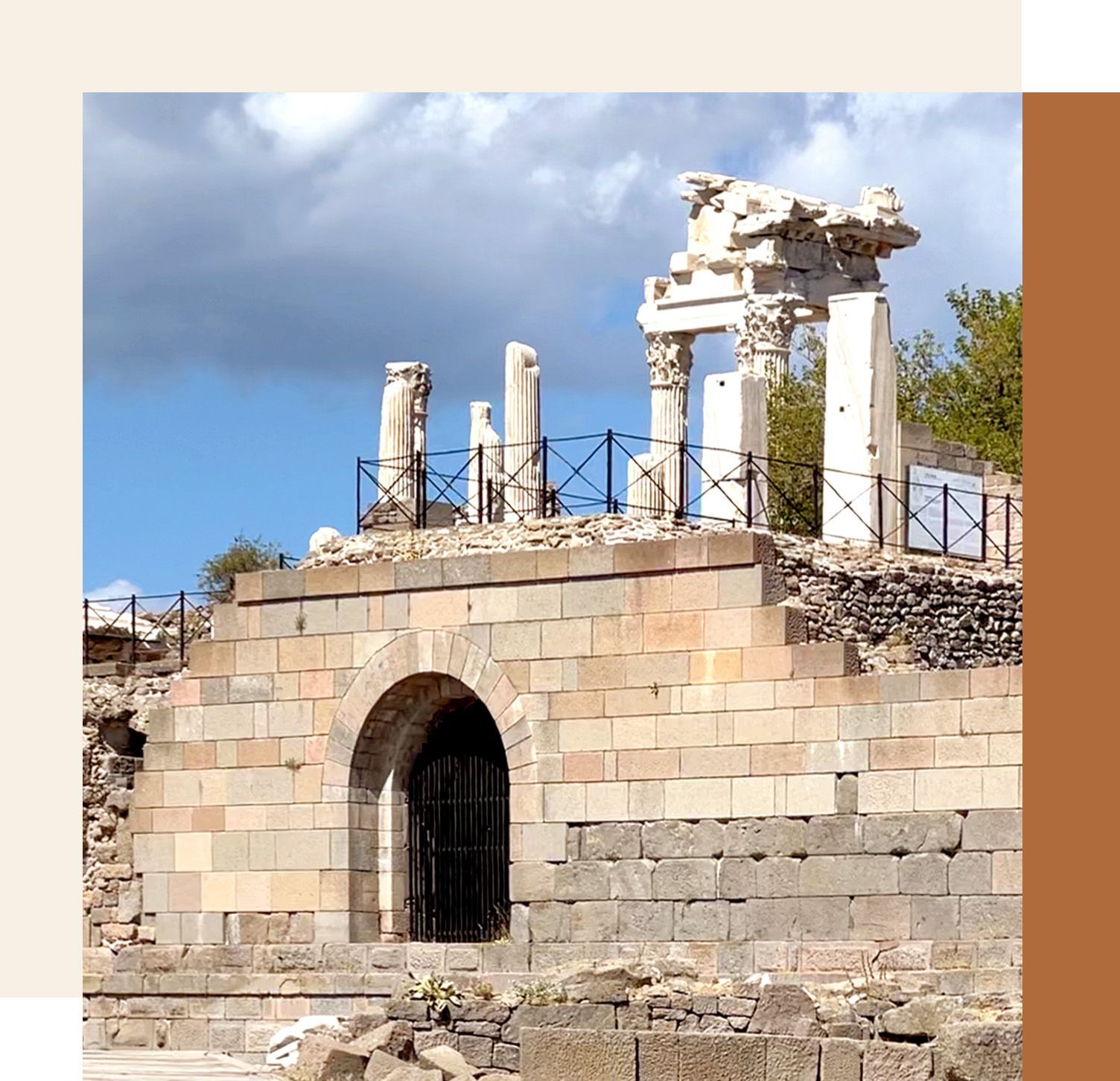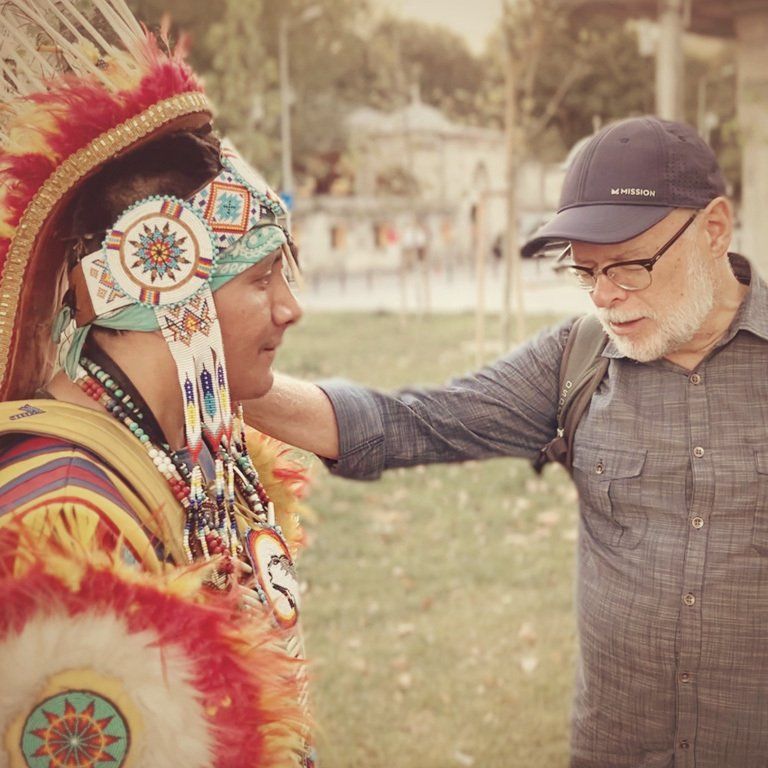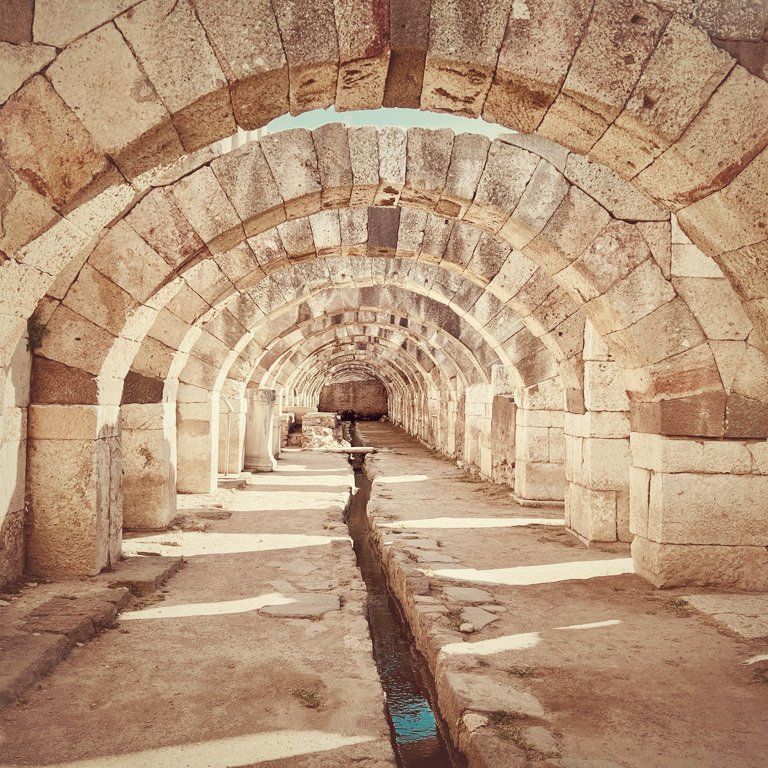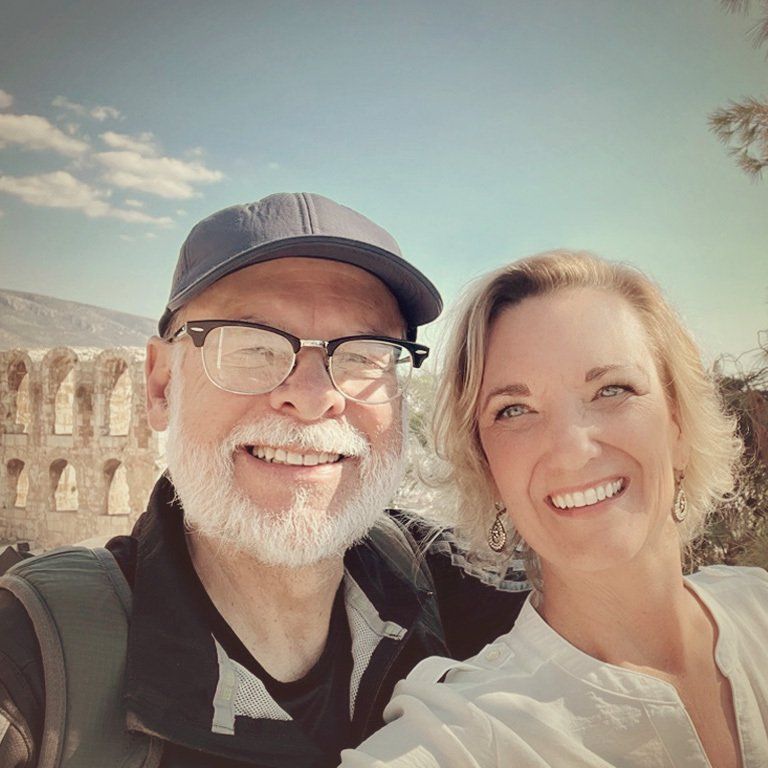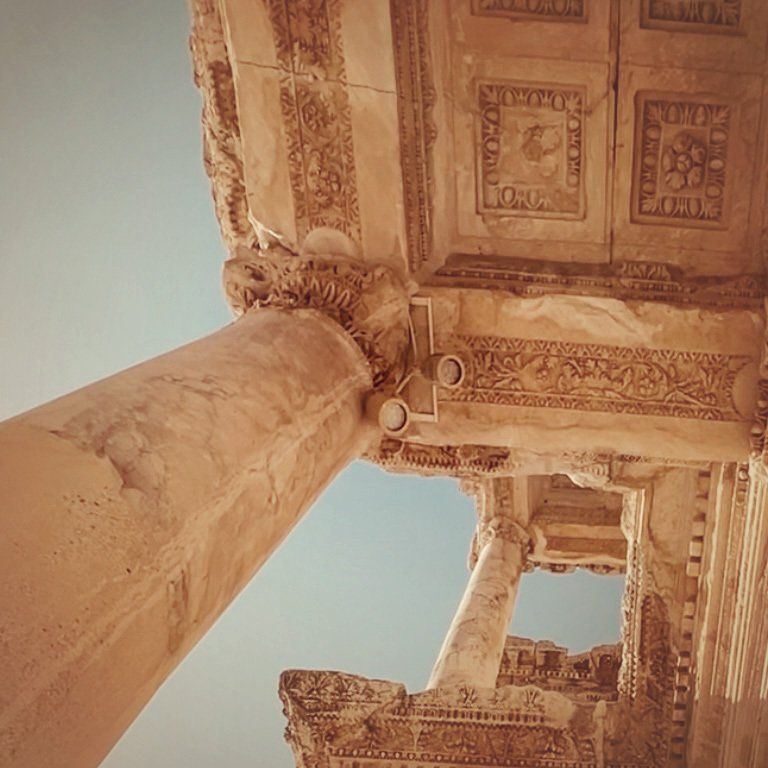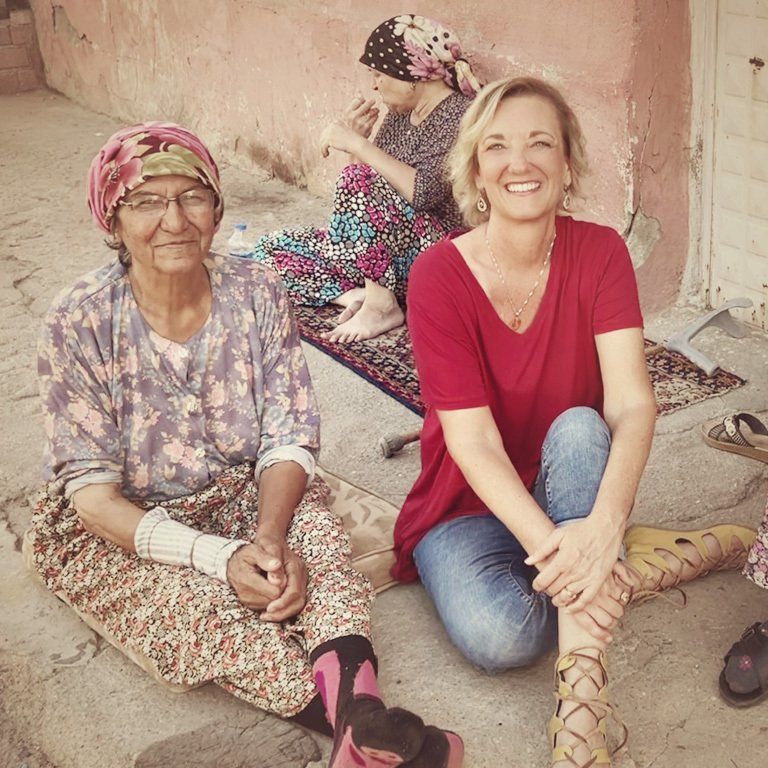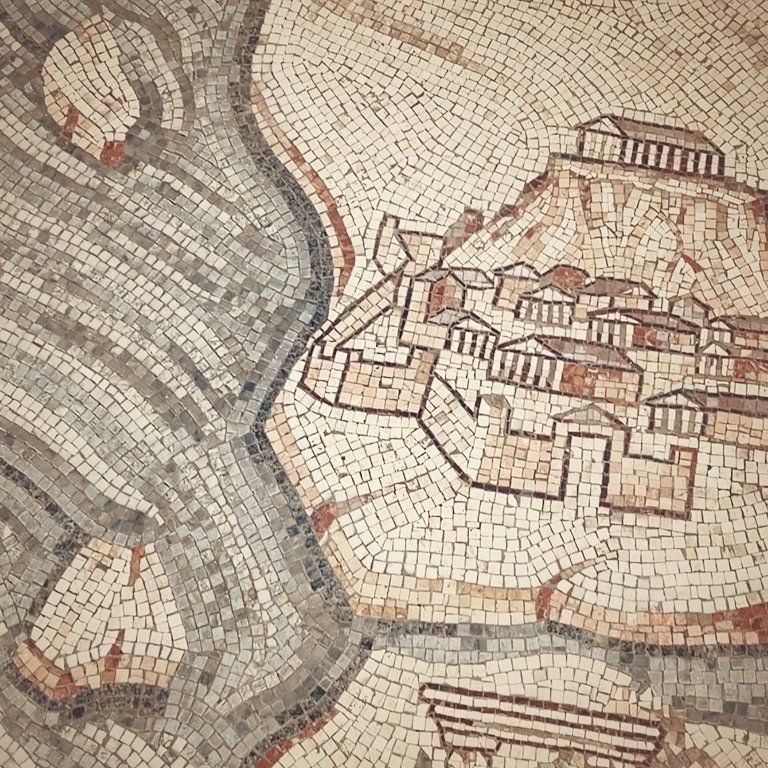Are you inspired to visit the biblical sites and historic cities in Turkey? Come with us on a life-changing adventure!
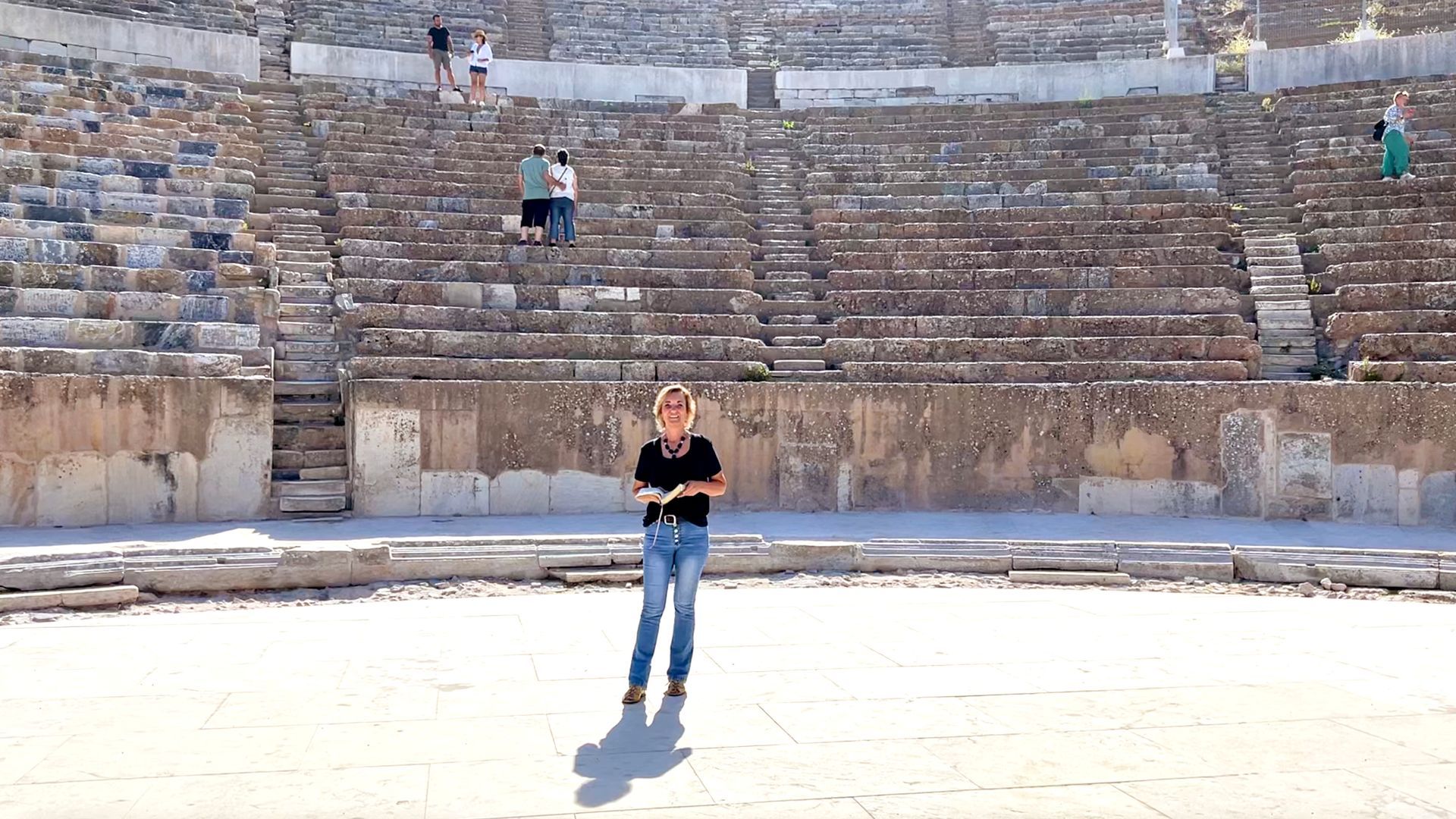
When you think about the city of Ephesus from the first century, what's the first impression that comes to mind? Paul's incredible letter to the Ephesians—and his narrow escape from the mob (Acts 19)—may be your only points of reference. Would it surprise you to learn Ephesus was a place of wealth and opulence? A city of power and beauty? The center of religion and idol worship? While all these descriptions are true, the people of that day saw something more. The citizens considered Ephesus to be a notoriously evil place.
The Biblical Significance of Ephesus
To the angel of Messiah’s community in Ephesus write: “Thus says the One who holds the seven stars in His right hand, the One who walks in the midst of the seven golden menorot: I know all about your deeds and your toil and your patient endurance, and that you cannot bear those who are evil. You have tested those who call themselves emissaries and are not, and have found them to be liars. You have perseverance and have endured for My name’s sake, and you have not grown weary.
But this I have against you, that you have forsaken your first love. Remember then from where you have fallen. Repent and do the deeds you did at first. If not, I will come to you and remove your menorah from its place—unless you repent.
Yet you have this going for you, that you hate the deeds of the Nicolaitans, which I also hate. He who has an ear, let him hear what the Ruach is saying to Messiah’s communities. To the one who overcomes,
I will grant the right to eat from the Tree of Life, which is in the Paradise of God.” Revelation 2:1-7
The heart of the city was fueled by worship of Artemis, the goddess of fertility. Known also as “The Queen of Heaven” and “The Perpetual Virgin,” Artemis was one of the most revered of the Greek deities. Her temple, originally built in 600 B.C. by Sardis's King Croesus, was considered to be one of the seven wonders of the ancient world. As protector of the city, Artemis was very powerful. Ephesus was chosen as “neokoros” for her temple, responsible for the purity of worship given to her. People would flock to the city and deposit money in her temple like a bank, believing Artemis would make them successful, powerful, and rich. Money was borrowed at high interest rates, causing the wealth of the city to swell.
Situated outside the city, her temple sat in the middle of a swamp. A boundary of space surrounded every temple, creating a sacred enclosure called “paradise.” This word “paradise” was borrowed from the Persian language meaning “garden,” and found its way into the Septuagint—the Greek translation of the Hebrew Scriptures—which was read by the early church. This sacred enclosure was a safe haven for criminals, an asylum sanctioned by the city. The size of the paradise could vary from ruler to ruler. In 41 B.C., Mark Antony expanded the borders of the sacred enclosure to encompass 1/4th of the city, giving free reign to petty criminals, increasing corruption. In the first century A.D., Ceasar Augustus returned the borders to their original boundary, only to have the perimeter swell again during the reign of Domitian.
Inside the paradise for Artemis a sacred tree grew, called “The Tree of Life.” Many cultures attributed life-giving properties to trees, but this tree that fed criminals stood in stark contrast to the Tree of Life mentioned in the paradise of Eden found in Genesis 2:8.
“To the one who overcomes, I will grant the right to eat from the Tree of Life, which is in the Paradise of God” (Revelation 2:7).
The context could not be clearer to the early believers in Ephesus. This message was a direct affront to the gods of their city. This promise given to them through John's revelation clearly established Yeshua's supremacy and superiority over the gods of the earth. The inferior reality of their natural world would be supplanted by the superior promise of the spiritual realm—Everlasting Life in the Presence of God.
The Seven Churches of Revelation
Community Reputation: The Persevering Church
Correction Needed: Return to your first love
Promise Given: Overcomers granted the right to eat from the Tree of Life in the Paradise of God
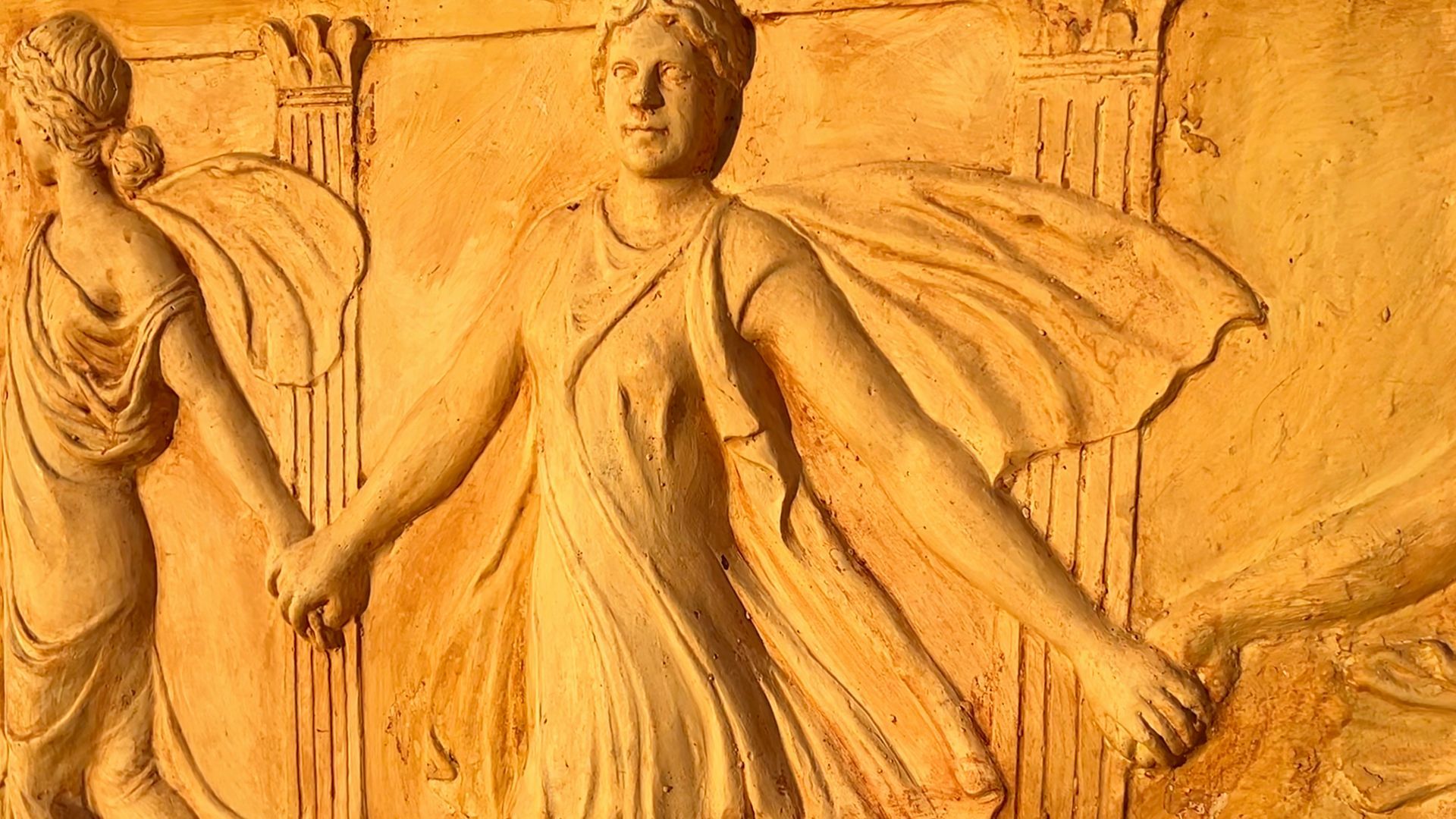
The theme of God's love permeated the Apostle Paul's writing to the Ephesians, as did the Apostle John's books (1, 2, 3 John and the Gospel of John), which were written from this city.
Key Verse
“To the one who overcomes, I will grant the right to eat from the Tree of Life, which is in the Paradise of God.”
Revelation 2:7
Spiritual Inheritance
Courage through times of tribulation and testing, yielding eternal benefits that cannot be bought
What to Expect in Ephesus Today
Why Christians Should Visit
Ephesus was a city where its natural wealth was astonishing. How could it not? Within its boundaries it contained one of the seven wonders of the ancient world! In the spiritual realm, Ephesus contains a wealth of spiritual deposits, too—treasures that are ready to be accessed by those who have their senses trained to discern (see Hebrews 5:14).
What are these treasures? A spiritual inheritance that believers in Messiah Yeshua have the right to possess, having been adopted into the family of God. An inheritance of patience, of perseverance, of holding fast to what is right without growing tired or giving up. An inheritance of courage in the face of opposition. An inheritance of love that is pure. And an inheritance of the right to eat from the Tree of Life.
When you come to Ephesus, be prepared with your spiritual senses activated and engaged to receive all the Lord wants to deposit in you!
About Lorraine Marie
Social Media
Find us on
The Inspiring Blog
